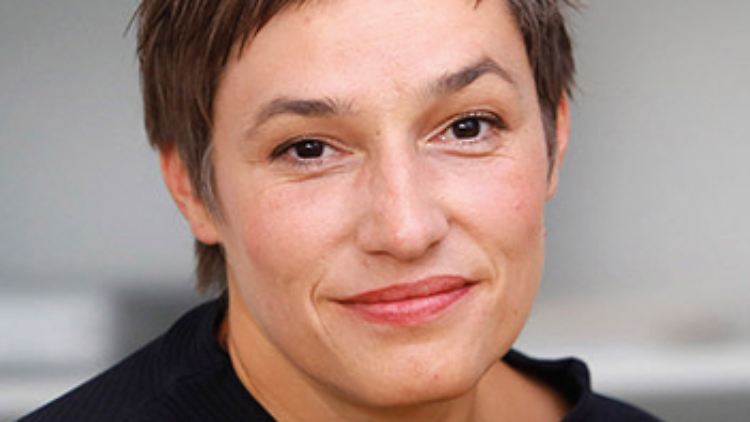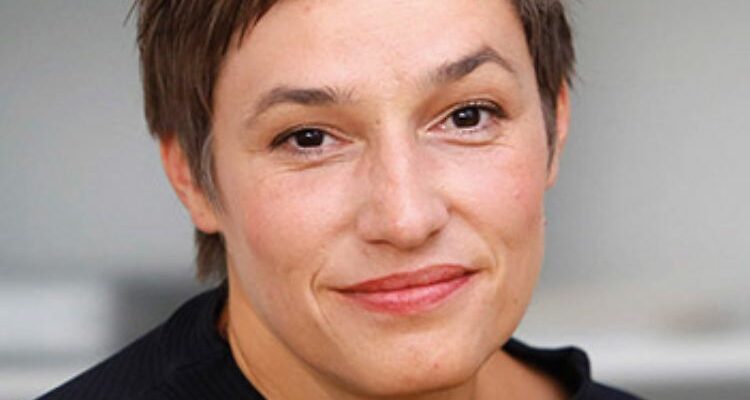Peace and conflict researcher Nicole Deitelhoff says freezing the war in Ukraine is not an option. She contradicts the SPD parliamentary group leader Rolf Mützenich. But she also agrees with Mützenich on another point: “Of course we can’t always just look at the dimension of military support, but we have to keep our eyes open and always check whether opportunities arise.”
ntv.de: SPD parliamentary group leader Rolf Mützenich asked in the Bundestag on March 14th whether it wasn’t time “that we not only talk about how to wage a war, but also think about how to freeze a war and can finish it later”. What does it mean to “freeze” a war?

Prof. Dr. Nicole Deitelhoff is head of the Leibniz Institute for Peace and Conflict Research in Frankfurt/Main.
(Photo: Uwe Dettmar)
Nicole Deitelhoff: “Frozen wars” refer to wars in which both parties cease arms even though the conflict is not over. In most cases the ceasefire is not complete; violence continues, but the systematic use of violence is paused. At the same time, there is no peace agreement, no permanent ceasefire, and usually no political process through which peace can be achieved. Ultimately, the entire conflict is just silenced.
Are there any examples of frozen wars? Hat myself called in the “Rheinische Post” Cyprus, South Ossetia, Transnistria and Korea as examples.
The concept of conflict freezing became popular in the 1990s, after the collapse of the Soviet Union. It was first referred to the conflicts that arose in Russia’s neighborhood in the Caucasus. These include the two conflicts over the Georgian territories, South Ossetia and Abkhazia, as well as Nagorno-Karabakh, which is disputed between Armenia and Azerbaijan, but also the Transnistria region, which has broken away from Moldova. Although the conflicts in Cyprus and Korea are older, the term “frozen conflict” only became popular in the 1990s.
Is “freezing” the war in Ukraine a realistic option?
No, not at all at the moment. The concept of freezing is based on the fact that both parties to the conflict are ready to stop fighting – or have no alternative but to do so. That is not the case in Ukraine. We have heard this from Putin in the last few weeks and days: He has made it very clear that he has no interest in stopping this conflict.
They are referring to his statement in a television interview broadcast in Russia on March 13.
He says it would be “ridiculous” if Russia were to negotiate “just because they’re running out of ammunition.” This shows what the motivation level is on the Russian side. At the same time, I don’t see that anyone would be able to put pressure on Russia to agree to a freeze – perhaps not even China, which in any case shows no inclination to pressure Russia. That’s the problem: We can’t conjure up a freeze; both parties to the conflict would have to want it.
Putin also said in the interview that Russia was ready to negotiate.
Putin, his spokesman Peskov and Foreign Minister Lavrov constantly say that Russia is of course ready to negotiate. But they also always make it clear that Ukraine must first accept Russian conditions. This includes a recognition of the annexations that Russia has illegally carried out, as well as the “denazification” of Ukraine, i.e. an exchange of elites, and demilitarization and thus, in effect, the abandonment of Ukrainian independence. With such preconditions there can be no question of open negotiations. Peace negotiations mean that the parties sit down at the table and seek compromises on how they can live in lasting peace. If one side dictates to the other how this should happen, then that is not peace negotiations, then that is a surrender.
Mützenich said on Tuesday that he wanted to “encourage everyone, if there is an opportunity – I don’t see that at the moment because of President Putin – to take advantage of a window of opportunity that then also helps to bring local ceasefires, humanitarian ceasefires, possibly into the absence of military force”. What could be such a window of opportunity?
He’s absolutely right: As long as Putin is there or as long as we have a situation in which Russia has a military advantage and is gradually advancing – albeit with massive losses – there will be no window of opportunity. But the general point that Mützenich made is correct: of course we can’t always just look at the dimension of military support, but we have to keep our eyes open and always check whether opportunities arise. These could be internal political upheavals in Russia that open up something so that a diplomatic initiative could be taken forward. But that happens all the time too. There were talks in Jeddah, Saudi Arabia, then in Davos, Switzerland is preparing further peace talks with Ukraine for the summer. This is not yet underway with Russian participation, but it is an attempt to rally the international community beyond the West behind a peace initiative in order to be prepared if a window of opportunity opens up.
Putin has again called for “security guarantees for the Russian Federation,” but he has not revealed what these might be. What could he be thinking about? Or is this just a bluff?
I also don’t know if there’s a substantial idea behind it or if it’s some kind of embarrassing argument. Security guarantees for the Russian Federation could mean buffer zones between Russia and NATO, assurances that Ukraine will never join NATO, or the resumption of confidence-building measures. Putin’s ideas that NATO’s eastward expansion can actually be reversed, or the complete demilitarization of Ukraine – the West and Ukraine could not seriously guarantee that. Because everything indicates that Russia would then simply overrun Ukraine.
Putin repeatedly threatens to use nuclear weapons. How seriously does NATO have to take this?
Russia is the largest nuclear power in the world when it comes to the number of combat-ready warheads, which always has to be taken seriously. NATO takes this seriously too. For example, it constantly checks whether anything changes in the position of the missile ramps, whether anything unexpected generally happens with the Russian nuclear forces or the Russian nuclear submarines. But so far there is nothing to see. Instead, these nuclear threats have become somewhat routine, with which Putin repeatedly tries to create fear. So far it doesn’t look like this will be followed by action. That doesn’t mean you can ignore it. We know that there have also been discussions within the Russian armed forces about the use of nuclear weapons, but this mostly concerns the elaboration of scenarios, which all armed forces do. Think about the intercepted conversation regarding the delivery of Taurus. But it is not the case that the danger has increased immensely recently.
Hubertus Volmer spoke to Nicole Deitelhoff
